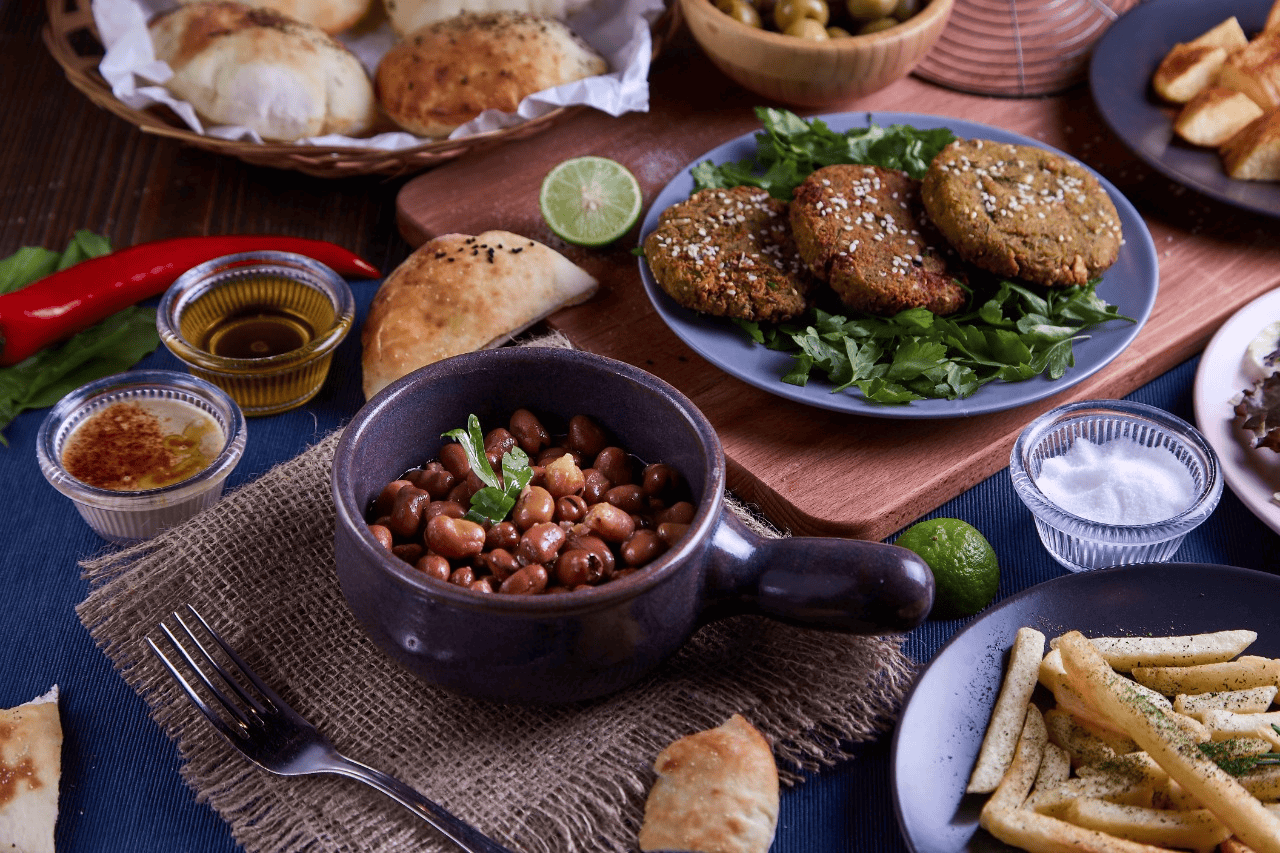Egyptian cuisine is influenced by a unique medley of cultures, including those of Mediterranean, Greek, Arab, and Levantine origins. Start the day off with a plate of crunchy Egyptian taameya (made with fava beans, as opposed to the chickpeas used in the Levantine recipe), a bowl of steaming hot foul medames (cooked fava beans) drizzled with olive oil, a plate of Egypt’s finest soft white cheese (also known as Domiati cheese) and crumbly roumy cheese, and a couple of loaves of eish baladi (Egyptian flatbread).
For lunch, grab a plate of one of Egypt’s national dishes, koshary, and delight in the flavorful combination of lentils, pasta, rice, and chickpeas drizzled with a tangy tomato sauce and garnished with crispy fried onions—a wonderful option for both vegetarians and vegans.
For dinner, ponder over endless appetizing choices: kebda, an Alexandrian specialty dish of spicy beef liver sandwiches packed with garlic and cumin; a hearty plate of mahshi (stuffed vegetables); a savory bowl of molokhiya, a delicious green soup made with garlic and coriander; or succulent kofta and kebab, mouthwatering grilled lamb and beef dishes, served with an array of small traditional salads, such as tahini or baba ghanoush.
A sweet end to your meal could come in the form of a bowl of ruz bil laban (rice pudding) with vanilla ice cream or a warm serving of Umm Ali, a traditional Egyptian oven-baked dessert made of bread or puff pastry soaked in milk and sugar and garnished with shredded coconut, raisins, and pistachios.


